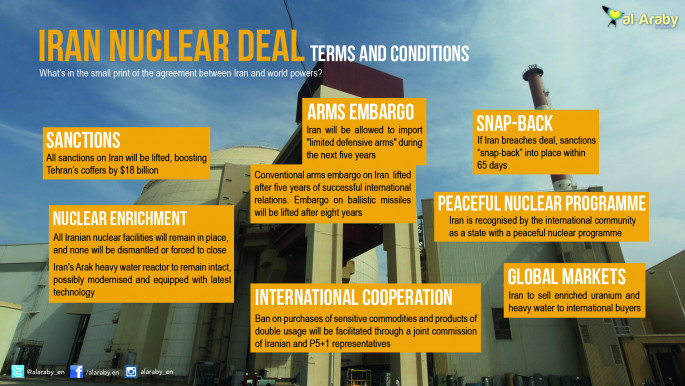Iran 'only received $3bn in frozen assets'
Tehran's assets - which concerned critics expected to amount to more than $100 billion - total no more than $55 billion globally, the US official said, as he defended the nuclear deal in front of members from the pro-Israel group, J Street.
"Remember the debate over how much money Iran was going to get?" he asked delegates at the dinner.
"Sometimes you hear some of the presidential candidates putting out a mistaken figure of $155 billion. I never thought it would be that.
"Others thought it would be about $100 billion, because there was supposedly about $100 billion that was frozen and so forth," he continued.
"We calculated it to be about $55 billion, when you really take a hard look at the economy and what is happening," he said, giving the usual State Department estimate.
"Guess what folks? You know how much they have received to date? As I stand here tonight, about $3 billion," the official assured.
Opposition fears
Stern opponents of the nuclear deal - dubbed the Joint Comprehensive Plan of Action (JCPOA) - claim loosening the grip on $100 billion-worth of frozen Iranian assets could allow the country to fund "terrorism" against American targets and Washington's regional allies.
But Kerry took the opportunity to note the restrictions placed upon Iran in the historic deal, reminding the hawkish crowd of the US' capability to trace uranium enrichment while adding that Iran's stockpile had been reduced from 12,000kg to 300kg.
"[Iran] was two months away from potentially breaking out," he said. "A year away, and we have the capacity to know what they are doing."
"Despite sceptics' most dire predictions," he added, "we are in a place that some people thought was unimaginable."
Reality on the ground
But officials within the Islamic Republic suggest the deal has had little or no effect on the situation on the ground, with very few international banks and private companies arriving to kick-start trade - much to the dismay of eager analysts that expected a sudden boost to the crippled Iranian economy.
Tehran has laid the blame on the US - which it says has not lived up to its side of the agreement due to the ongoing sanctions aimed at Iran's missile programme.
Earlier this week, a row on an oil output freeze left Iran in a sticky situation.
The country has taken advantage since sanctions were eased in January, pumping two million barrels of crude oil per day, up from just over one million previously, in an attempt to stabilise its position among world producers.
"Accepting a production freeze in practice amounts to a voluntary acceptance of sanctions by our country after years of effort to have them lifted," said Iranian oil minister Bijan Zanganeh.
"A freeze by Iran at January 2016 production levels would mean that sanctions are not lifted and Iran's exports would be stabilised at the sanctions level."
The UN, US and EU imposed stringent sanctions on Iran for several years in an attempt to force the country to stop its uranium enrichment programme, before an agreement was formed and officially signed earlier this year.
![Iran nuclear deal [AFP] Iran nuclear deal [AFP]](/sites/default/files/styles/image_345x195/public/media/images/0C3E2137-6EA9-4A92-A535-F9926C885DD9.jpg?h=d1cb525d&itok=JONQFAgn)


